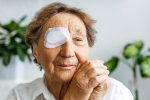
Glaucoma is a severe eye condition that affects millions of people worldwide. Without regular screenings and treatment, glaucoma can lead to permanent vision loss. Fortunately, there are steps you can take today to protect your eyes from glaucoma. From getting regular eye exams to eating healthy foods, here are 10 simple things you can do to keep your vision safe from glaucoma. Taking these steps can help preserve your vision for years to come and reduce your risk of developing glaucoma-related vision loss.
Understand the risk factors of glaucoma.
First, it’s important to understand the risk factors of glaucoma. People with a family history of glaucoma have an increased risk of developing this condition. You can lower your glaucoma risk by getting comprehensive eye exams and regular eye hygiene. If you’re a man over the age of 40 who has vision issues that are not related to glaucoma, you also have an increased risk of developing glaucoma. If you smoke, you also have an increased risk of developing glaucoma, as do those with a history of diabetes or who are overweight. It’s also important to know that glaucoma is a progressive condition that can worsen over time. Because glaucoma is a condition that attacks the front portion of your eye, it is difficult to prevent or reverse. However, early detection and treatment can help slow down the progression of glaucoma.
Schedule regular comprehensive eye exams.
Eye exams should be a part of your routine year-round. Even if you don’t have any vision problems, you should have a comprehensive eye exam every year. This can help identify potential vision problems early and allow you to take preventive action. A comprehensive eye exam is an in-depth screening of your eyes. It includes vision testing, visual acuity testing, eye exams, and a review of your eye health. Your doctor may also order tests to test for glaucoma, such as a gonioscopy and a corneal endothelial cell analysis. Although you can perform these tests yourself in certain cases, it’s recommended that you see your doctor for an accurate diagnosis.
Monitor your eye pressure.
Eye pressure is the pressure inside your eyes. It can change significantly in people with glaucoma, and pressure monitoring devices are now frequently used to detect this change and monitor treatment. There are several types of pressure monitoring devices, each suited to monitoring the pressure in a specific type of eye. Sometimes, your doctor may prescribe an eye drop that you use at home to monitor your eye pressure. You should ask your doctor which device you should use to monitor your eye pressure.
Wear protective eyewear.
Protect your eyes from potential damage with protective eyewear. Protective eyewear is recommended for people with elevated eye pressure and those with a family glaucoma history. If you’re wearing corrective eyewear, you should clean and change it daily. Eye injuries are a serious risk for the eyes and can lead to vision loss. Wear your corrective eyewear at all times, especially when working, exercising, or using household chemicals. Keep your eyes safe by wearing your eyewear while swimming and doing other water-related activities, such as boating, fishing, and swimming. Make sure to buy protective eyewear that fits comfortably and comes with a case. Protective eyewear should also be replaced periodically. It’s recommended that you get your eyewear replaced every two years.
Increase your consumption of omega-3 fatty acids.
Omega-3 fatty acids have been shown to reduce the risk of developing glaucoma. In fact, a 6-week study found that people who took omega-3 fatty acids had a 30% lower risk of developing glaucoma. In addition, another study found that people who increased their omega-3 fatty acid intake had a decreased risk of developing elevated eye pressure. You can find omega-3 fatty acids in fish, walnuts, flaxseed, canola oil, salmon, and other fish and seafood products. To increase your omega-3 fatty acid intake, follow the meal plan discussed in chapter 10. You can also add fish and seafood to your diet.
Exercise regularly
Regular exercise has been shown to lower your risk of developing glaucoma. Numerous studies have found that people who participate in a regular exercise routine have a significantly lower risk of developing glaucoma. Even people who participate in an intense exercise regimen can reap the benefits. Simply by exercising for 30 minutes a day, you can lower your risk of developing glaucoma. Exercise does more than burn calories. It also improves your blood flow and muscle strength. These factors allow your eyes to better drain fluids from your eyes, which can help prevent glaucoma. In addition to lowering your risk of developing glaucoma, regular exercise can improve your quality of life. It can help you live longer, stronger, and healthier. It can also help you feel better and sleep better.
Maintain a healthy weight.
Being at a healthy weight can lower your risk of developing glaucoma. A study found that people with a healthy body mass index had a 34% lower risk of developing glaucoma. In addition, being overweight or obese has also been associated with an increased risk of developing glaucoma. A healthy weight is different for everyone. The goal is to maintain a healthy body weight, defined as being at a specific body weight that keeps your metabolic rate at an appropriate level. You can maintain a healthy weight by eating a healthy diet and exercising regularly. Make sure to fill up on fruits and vegetables that are low in calories but packed with nutrients, vitamins, and minerals. Limit your intake of fatty and salty foods high in calories, sodium, and fat.
Quit smoking
Smoking has consistently been associated with an increased risk of developing glaucoma. In fact, one study found that a moderate intake of cigarettes was associated with a 39% increased risk of developing glaucoma. If you smoke, you should make quitting your top health priority. Quitting smoking can lower your risk of developing glaucoma and several other serious diseases and conditions. It can also improve your quality of life, increasing your overall longevity.
Subtitle – 2
Avoid long-term use of steroid medications.
Subtitle – 3
Many eye medications are steroid-based. Steroids can cause long-term damage to your eyes, and long-term use can lead to glaucoma. If you’ve been prescribed a steroid for an extended period, talk to your doctor about whether you should discontinue its use.
Glaucoma is a serious eye condition that can cause permanent vision loss. If you know someone who has glaucoma, you can protect their vision from this condition by educating them about the risk factors and how to prevent future vision loss.



